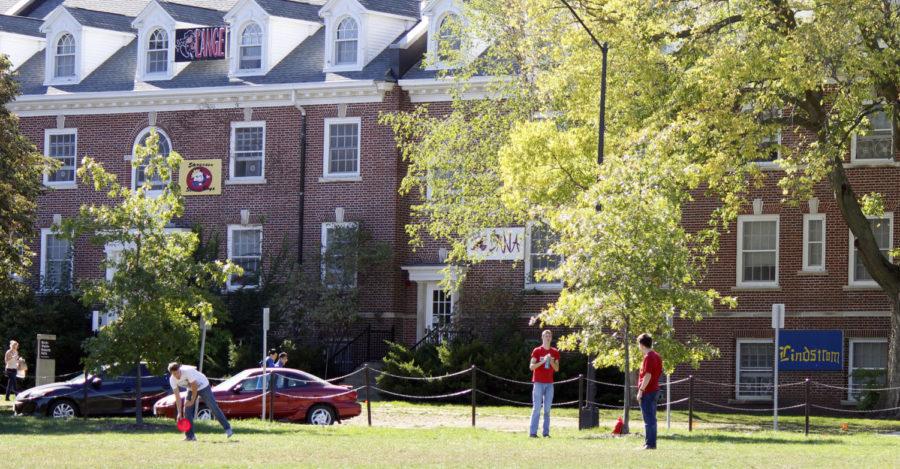President Steven Leath appoints Student Experience Enhancement Council
Caitlin Ellingson/Iowa State Daily
The Student Experience Enhancement Council makes recommendations to accommodate the needs of students regarding issues such as housing, dining and help centers due to the increased enrollment this year.
October 14, 2013
As enrollment increases, the need for housing, classes, on campus dining and advisers also increase.
To compensate, President Steven Leath has appointed a group of university experts to make recommendations for the issues faced by Iowa State.
The Student Experience Enhancement Council was born.
The appointed council turned in their recommendations midsummer and were approved this fall.
“We are aiming for a comprehensive experience,” said Pamela Anthony, dean of students and co-chairwoman of academic enrichment for the council.
To make the experience for the undergraduate students at its best, the council formulated a list of recommendations to improve the student experience.
“We’re doing our best to keep the experience for the undergraduate students good,” Anthony said.
To improve the experience of the incoming freshmen, the council focused on the necessities of college living, which included housing, need for classes and dining.
Upon approval, the council took immediate action and decided to implement urgent needs first. They focused on accommodating the increasing amount of students.
They also focused on student housing by leasing apartments that resemble the residence hall lifestyle with student-run government and a community adviser.
“We leased space and we set up an environment that would be perfect for students but would still have a residence hall feel,” said David Holger, an associate provost for academic programs and member of the council.
With enrollment at an all time high, the need for more classes increases. To compensate, the council recommended adding more classes and labs.
There is a need for more faculty due to the rising number of students, classes and labs. Recommendations were made to hire 200 more teachers, advisers and administrative staff to accommodate the students.
With the increase of students who need to take labs, the university had to find a way to accommodate.
One idea brought up among many was increasing the amount of classes offered. The laboratory class facilities are already in use most of the day, so the idea to fix this was to add more classes later at night.
With the possibility of classes occurring at such late times, the next concern was transportation. The majority of CyRide’s scheduled routes are only active until about 9 p.m.
They then collaborated with CyRide and they now offer later buses available to students who need them.
Other recommendations were made midsummer and are already signs of progress are being seen.
“Progress will legitimize the next steps,” said Peter Englin, director of residence and member of the council. “We were very quick and now we’re down to refining.”







